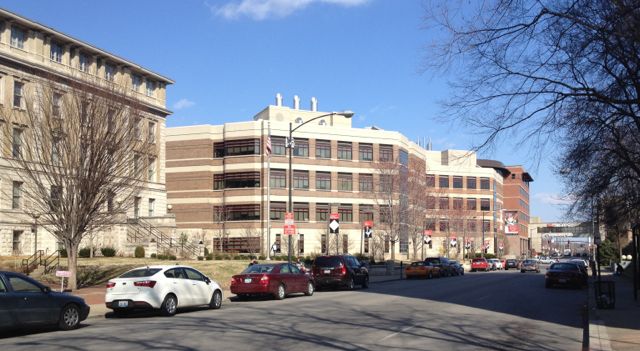Funding of Higher-Education in Kentucky– Death By a Thousand Cuts.
 The 2014 Kentucky legislative session is not over yet, but some would say it never really got started. The Governor has time to veto bills that have already passed, including line-item vetoes in the Budget. The House and Senate still have a final day or two to try to pass additional legislation or override any vetoes. Unless there is a miracle on the Ides of April, the budgets of the state Universities are now graven in stone.
The 2014 Kentucky legislative session is not over yet, but some would say it never really got started. The Governor has time to veto bills that have already passed, including line-item vetoes in the Budget. The House and Senate still have a final day or two to try to pass additional legislation or override any vetoes. Unless there is a miracle on the Ides of April, the budgets of the state Universities are now graven in stone.
What Makes a Good Legislative Session?
Complaints have been voiced that this session was not a fruitful one because so few bills of any significance were passed. That would be a valid observation if the most important function of the General Assembly was to pass good laws. Another school of thought, to which I have some affinity, is that the highest function of legislative bodies is to prevent bad laws from being born– legislative contraception as it were. From that perspective, our Kentucky House and Senate committees with their competitively-adversarial political party structures serve to prevent attachment of many nascent bills to the walls of their respective full chambers. Many bills deserve to be thus aborted.
I spent a good bit of my free time these past few weeks trying to understand what was happening to funding for the Quality Community Care Trust fund (QCCT) that has for some 30 years provided supplemental funding to the University of Louisville Hospital to care for uninsured inpatients. The amounts of funding provided by the city of Louisville and the Commonwealth have been decreasing, the contractual parties have changed several times, and the permitted uses of the money had slowly changed over time in an evolving medical ecosystem. In my opinion, that program is nearing the end of its useful lifetime. I have written about these matters often over the past two years and will continue to do so as I go through the Louisville archive of contracts and correspondence now available to me.
Not a Great Legislative Session for the State Universities.
Our public institutions of higher education are probably more unhappy than most with the outcomes of the session. At a time when they are being urged to enroll and graduate more students, their budget allotments from the general fund continue to shrink. Just as our state retirement systems were systematically underfunded to the point of impending insolvency, so too has funding to renovate or replace our university inventories of aging or inadequate buildings been ignored. What might have been accomplished in small pieces has now become an unmanageable disaster. Money for new educational facilities is largely a gleam in the eyes of university Boards of Trustee members. As I combed through legislative documents this spring, I had occasion to examine the blunt-knife approach to carving up academic budgets, but also to gain insight into the priorities of these institutions and the hoops they must jump through to advance their interests. The initial budgets from the General Assembly called for an across the board cut to the university budgets of 2.5%, and according to some, the 14th year in a row of such cuts. Continue reading “Kentucky’s Universities Fare Poorly in 2014 Legislative Session.”

